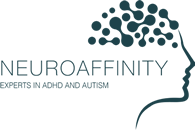
Initial Medication Assessment
(45 mins)
£250
(Note: This does not include the cost and supply of the medication; see below for more information.)

Follow-Up Appointment
(30 mins)
£150
(Note: This does not include the cost and supply of the medication; see below for more information.)

Prescriptions Outside
of Appointments
£20/prescription
On average, the monthly cost of ADHD medication typically ranges from £100 to £200, depending on the manufacturer’s pricing.
Once you have stabilized and optimized your medication, our prescriber will write to your GP to request a shared care arrangement.
*Please note that if the Specialist Clinician considers your case to be complex during the assessment, they may need additional information or seek advice from the Consultant Psychiatrist. This could potentially delay your report beyond the standard 7 working days.













